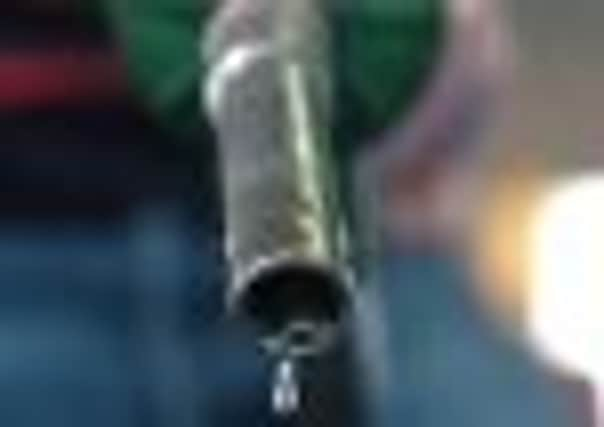Osborne urged to act over high fuel costs for rural motorists


The costs of diesel is on average 4p a litre more in rural areas than urban areas – with parts of North Yorkshire among the most expensive in the country, according to a survey by the Countryside Alliance.
Cars are now said to be becoming an “unaffordable necessity” for many living in rural communities after the group found diesel in Ryedale has hit 146.9p a litre, the joint highest of 30 areas surveyed.
Advertisement
Hide AdAdvertisement
Hide AdThe survey will add to calls for George Osborne to use the Budget later this month to offer more relief to motorists and businesses who have seen fuel bills soar despite a 1p cut in duty and the cancellation of other planned increases last year.
Countryside Alliance executive chairman Barney White-Spunner said: “Not only do people living in rural areas have to drive further to go to work, further to access essential services like schools, doctors and the supermarket, but they have to pay a lot more for their diesel to do so.
“The cost of fuel is a major concern for everyone who lives in the countryside, and cars are fast becoming an unaffordable necessity for many rural families. We urge the Chancellor to help the rural economy get back on its feet and to cut fuel duty in his forthcoming Budget.”
The group’s survey found the costliest diesel was in Ryedale and Purbeck in Dorset, while in Birmingham and in Dartford in south east London it was “only” 139.7p a litre. Overall, the alliance found that diesel in rural areas averaged 144p a litre, while in urban areas the average was 140p.
Advertisement
Hide AdAdvertisement
Hide AdElsewhere in Yorkshire, a litre of diesel cost 139.7p in Bradford, 139.9p in Leeds, 140.7p in Kirklees and 143.9p in Richmondshire.
Earlier this week a report found that UK motorists pay more in fuel tax than any other drivers in Europe and the Centre for Economics and Business Research (CEBR) has claimed that cutting fuel duty would create thousands of new jobs and could be done at no loss to the Treasury.
Motorists in North Yorkshire will cling to the hope the Government may yet extend a pilot scheme which came into effect in the Inner and Outer Hebrides, islands in the Clyde, the Northern Isles and Scilly yesterday that provides a 5p discount, specifically targeted at easing the pain of high bills in remote areas.
Chief Secretary to the Treasury Danny Alexander said the initiative would “make a real difference to people who face the highest fuel costs in the country”.
Advertisement
Hide AdAdvertisement
Hide AdBut concerns have been expressed that recent increases in fuel costs will limit its impact – along with claims of profiteering.
Angus MacNeil, the SNP MP for the Western Isles, said fuel prices had already “increased by the equivalent of the discount over recent weeks”.
The AA called on the Treasury to launch a full-blown inquiry into fuel pricing across the UK in light of concerns of profiteering.
AA president Edmund King said: “It comes as no surprise that accusations of profiteering are flying around after the 5p rebate was officially passed on to drivers yesterday.
Advertisement
Hide AdAdvertisement
Hide Ad“We predicted this would happen as there is no transparency in wholesale and retail fuel markets, unlike in the USA, Australia and South East Asia.”
Despite the impact of higher bills on struggling businesses and families, Ministers have sought to downplay the prospect of any radical cuts in fuel prices in the Budget because of the strain on the public finances.
Skipton and Ripon Tory MP Julian Smith said: “From April petrol duty will be a full 10p lower than it would have been without the Government’s action in the Budget and this autumn. Families will save £144 on filling up the average family car by the end of next year.
“Fuel costs are a major issue in rural areas such as North Yorkshire and I will continue to represent the impact of these costs on families and on business but realistically the Chancellor has limited room for further manoeuvre given the current state of public finances.”